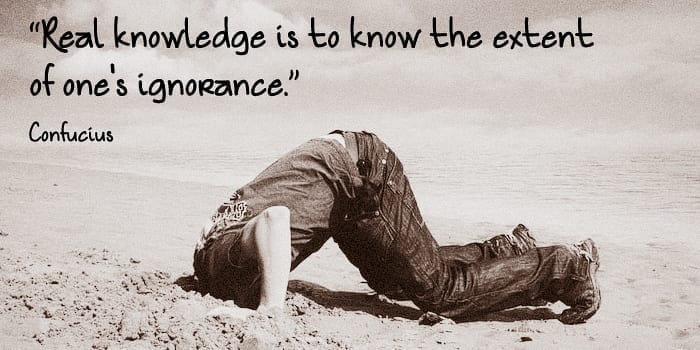Would you rather find out that your significant other is cheating on you or never find out? Though very far away and presumably irrelevant to your and my current circumstances, this question raises an issue that's not so far from what we know: Is ignorance really bliss?
Sure, I typically respond to the opening question by selecting the latter choice of oblivion as I imagine the pain and hassle it entails, but after I contemplate and fight my instinct, I choose the wiser option. The more daunting one. I choose to pop the bubble of ignorance and learn the truth.
Let's break it down. Your significant other is cheating on you. This action may be a result of a few reasons, the major being dissatisfaction in the relationship and/or sole disloyalty and a lack of integrity. A cheater is prone to cheating more than once, and if one continues it may just be a sign of bad character. Do you really want to be with someone who isn't committed to you? Someone who doesn't find satisfaction in your shared relationship? Someone who ignores basic morality? But let's say you insist on blissful ignorance. Even if you were to stay clueless, however, your partner would likely be affected by their own actions and the relationship could eventually deteriorate naturally. Chances are this relationship isn't successful or fulfilling, so challenging the issue head-on merely saves time and long-term struggle with someone who brings you harm.
Now that we've analyzed a hypothetical situation and its many deviating hypotheticals, let's take a look at how preferable knowing the truth really is.
In "Saving Sourdi," Nea digs into her sister Souri's situation. With her genuine care for Sourdi, Nea will go to any extent to save her. From a single phone call, Nea was put into a state of alarm crying, "'Well, don't you think she might be in trouble?... It's not like Sourdi.'" (Chai 122) Even as she's left in a state of semi-oblivion, she makes assumptions that cause her to struggle and eventually attempt to save Sourdi. Read this response to hear from Chai herself why she chose to leave Nea in the dark.
 |
| https://mayleechai.wordpress.com/2008/12/08/more-questions-on-saving-sourdi/ |
However, you may argue that in Oedipus' case, oblivion is the overwhelmingly favored circumstance. Prior to this revelation, he basked in glory and peace as a result of solving the riddle of the Sphinx, being crowned king, and marrying the queen of Thebes. It seems so easy to have never uncovered the truth, yet at the same time, it seems inevitable. As he intended to run away from his fate, instead, Oedipus ran to it. Being crowned king and his other successes simply abled Oedipus to uncover the truth. And with a persistent character comparable to Nea's, the course of events was streamlined with ease. Obviously, the story ended horrifyingly with the death of Jocasta and Oedipus' blinding, but in this case, the truth was unavoidable.
Both Nea's and Oedipus' stories fall short of being the perfect example of mythifying how ignorance is bliss. Their imperfect plots and distinct personality traits raise points of personal discretion to determine what's better, but ultimately they're both connected by the inevitable. If it's eventually going to happen, why lengthen the process and complicate the issue?
~



Comments
Post a Comment